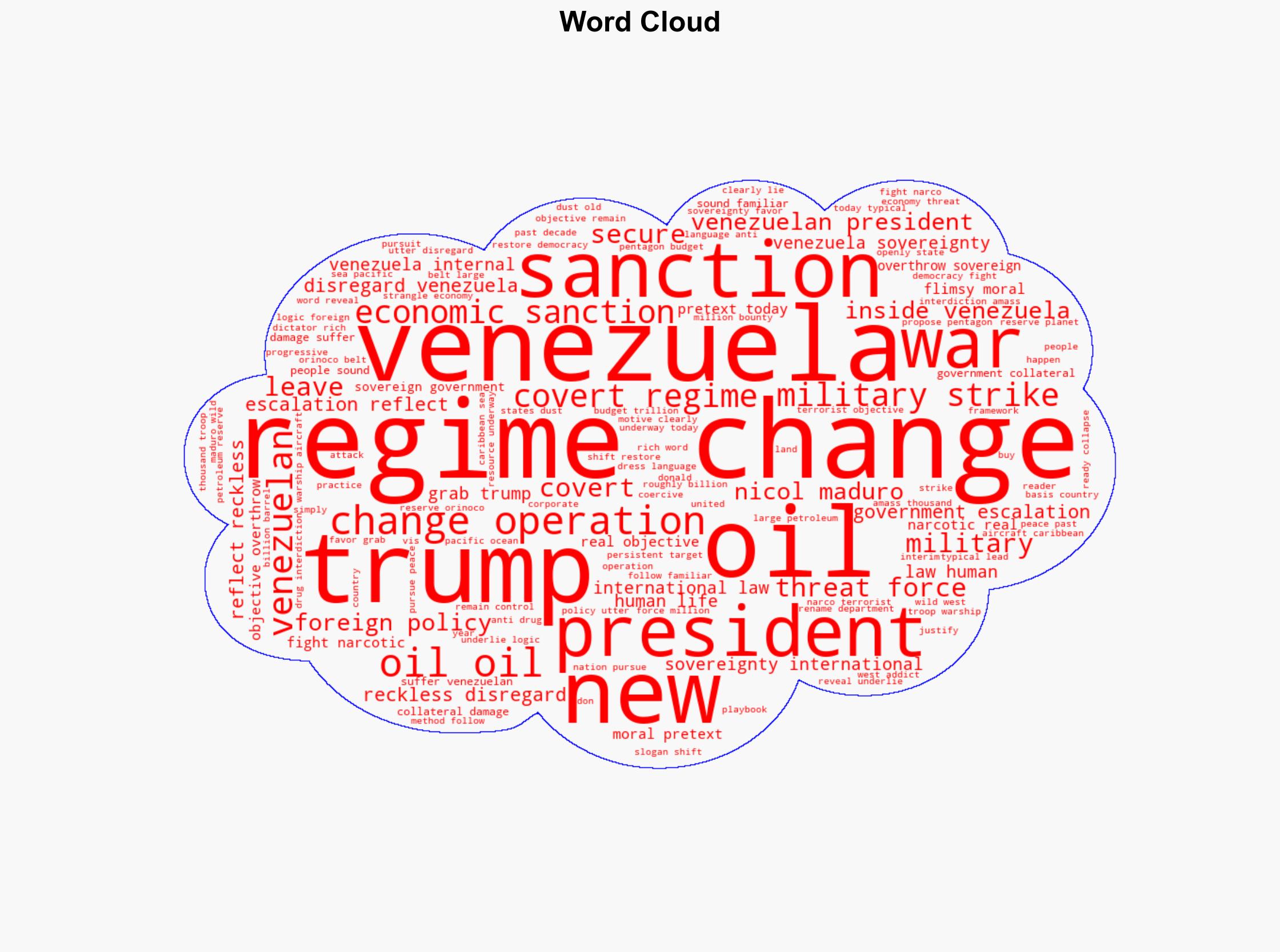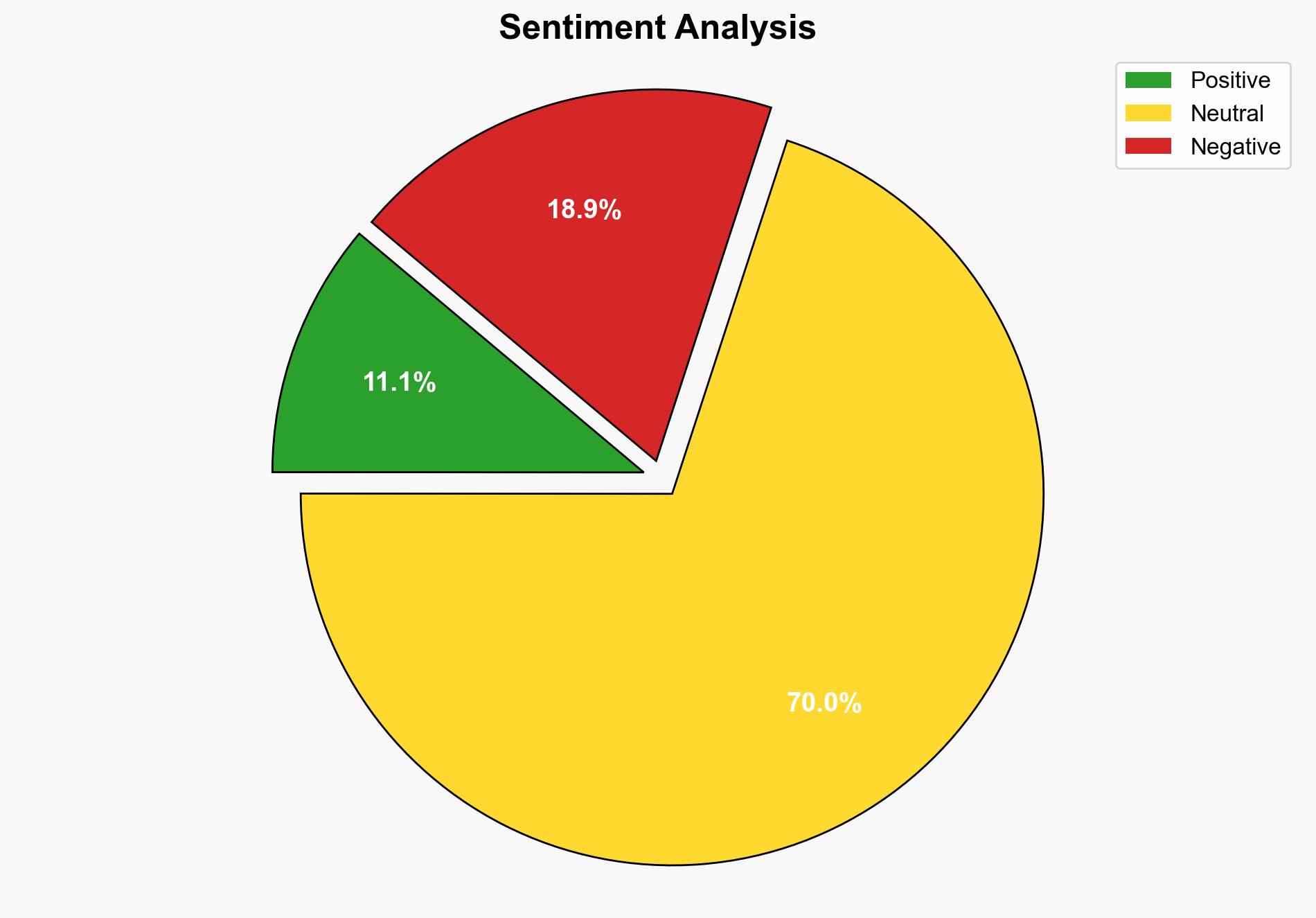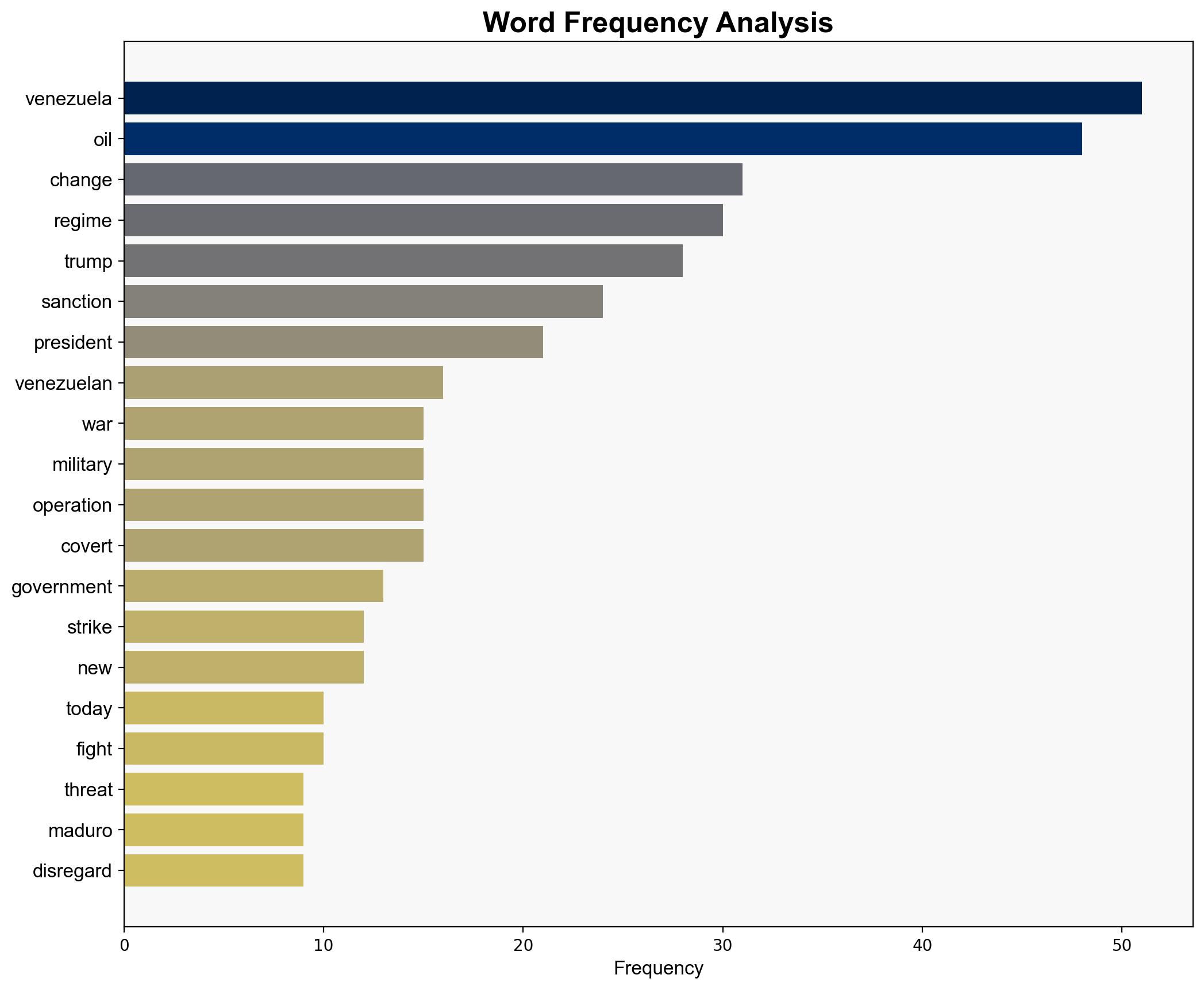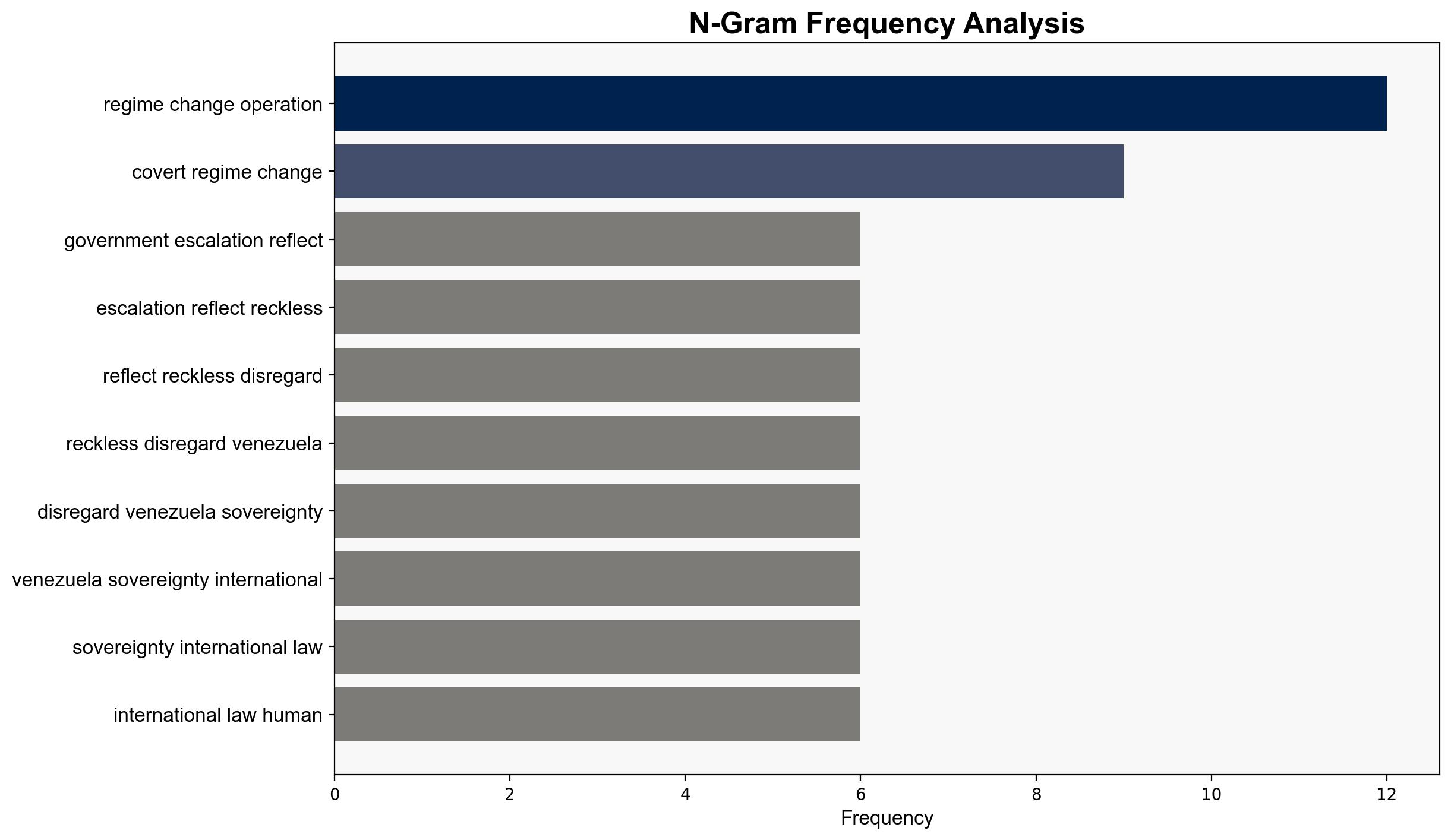Venezuelas Oil US-led Regime Change and Americas Gangster Politics – Common Dreams
Published on: 2025-11-04
Intelligence Report: Venezuela’s Oil, US-led Regime Change, and America’s Gangster Politics – Common Dreams
1. BLUF (Bottom Line Up Front)
The most supported hypothesis is that the US’s actions towards Venezuela are primarily driven by strategic interests in controlling its vast oil reserves, rather than solely promoting democracy or combating narcotics. Confidence level: Moderate. Recommended action: Monitor US-Venezuela relations closely, focusing on economic sanctions and military maneuvers, while engaging in diplomatic channels to de-escalate tensions.
2. Competing Hypotheses
1. **Resource Control Hypothesis**: The US is primarily motivated by a desire to control Venezuela’s significant oil reserves, using regime change as a means to this end. This is supported by historical patterns of US foreign policy and statements from key figures indicating interest in Venezuelan oil.
2. **Democracy and Security Hypothesis**: The US’s actions are driven by genuine concerns over democracy and regional security, aiming to counteract narcotics trafficking and authoritarian governance in Venezuela. This is supported by public statements and policy frameworks emphasizing these themes.
3. Key Assumptions and Red Flags
– **Assumptions**: The Resource Control Hypothesis assumes that economic interests override democratic ideals in US foreign policy. The Democracy and Security Hypothesis assumes that US actions are primarily altruistic and security-focused.
– **Red Flags**: The lack of transparency in military and economic strategies raises questions about true intentions. Historical inconsistencies in US foreign policy regarding regime change and resource control suggest potential deception.
4. Implications and Strategic Risks
– **Economic Risks**: Prolonged sanctions could destabilize the Venezuelan economy further, impacting regional markets and migration patterns.
– **Geopolitical Risks**: Escalation of military presence could provoke responses from Venezuela’s allies, such as Russia and China, leading to broader geopolitical tensions.
– **Psychological Risks**: Continued US intervention could foster anti-American sentiment in Latin America, complicating diplomatic relations.
5. Recommendations and Outlook
- Engage in multilateral discussions with regional partners to address the Venezuelan crisis diplomatically.
- Scenario-based projections:
- Best: Diplomatic resolution leading to stabilization and economic recovery in Venezuela.
- Worst: Military conflict involving regional powers, exacerbating humanitarian crises.
- Most Likely: Continued economic sanctions with sporadic diplomatic engagements.
6. Key Individuals and Entities
– Donald Trump
– Nicolás Maduro
– Juan Guaidó
– Lindsey Graham
– Rick Scott
7. Thematic Tags
national security threats, geopolitical strategy, resource control, regime change





